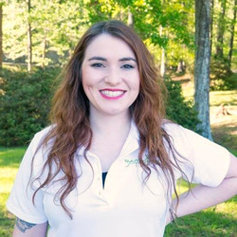What to Do (or Not Do) When Your Loved One Comes Back from Rehab


My name is Dianna and I am the Graduate Officer at Narconon New Life Retreat.
Over the last five years, my job has consisted of staying in touch with the graduates of our program to ensure that they stay on the right track.
I also stay in communication with parents to give them the guidance they need to help and support their loved one when he or she comes back from rehab and to catch any early signs of potential relapse.
My goal is to catch problems when they are small so that they don’t turn into big problems that will inevitably cause a relapse or some other bad outcome.
There is a lot of help out there on getting addicts into treatment, but I don’t see enough on what to do when they finish and get back to the “real world.”
Over the years I have put together a guide for families with what to do, or not do, after their loved ones complete treatment.
1. Have a thorough plan laid out before they are discharged from treatment.
This plan should consist of what they are going to do each day over the next couple of weeks and include short-term and long-term goals.
Too many times I’ve seen people go home and “vacation” after rehab. This is not the way to go. You need to hit the ground running because staying productive is key. It also needs to be something that the family and recovered addict agree with.
2. Stay accountable by drug testing.
One great way to help someone newly in recovery is to have a plan for drug testing.
This needs to be done with everyone’s agreement and in coordination with the treatment program. If the person feels coerced or forced they are unlikely to remain compliant, but if it’s something they agree to, it can be a powerful tool to help them in those “weak” moments.
You can buy home drug tests at all drugstores or you can order them online in bulk. Don’t buy drug tests that only test for the person’s drug of choice, because one can easily just turn to a different drug. I would go with the ones that test for 12 different types. Test them randomly and once you ask them to take it you need to stay with them until they do.
There are many ways to fake drug tests these days and you don’t want to give them the time to do that. Drug testing works great as it prevents the family from questioning or wondering how their loved one is really doing and feeling guilty for doubting or suspecting. It also prevents the recovered addict from feeling like the family suspects they are using.
3. It’s important to list out rules and guidelines that must be met and upheld by the recovering addict
If the recovering addict is going to live at home or around other family members. It’s important to clearly say what is expected. Agreement of everyone involved is key.
Treating an addict in early recovery with suspicion or distrust is a sure way to cause upset. Neither should you treat them with kid gloves. Be aware of the past but allow the person a chance to grow. Clearly communicating what you expect is an important part of this.

4. One of the quickest ways for someone in early recovery to get into trouble is to associate with people with whom in the past they used drugs, bought drugs, or were allowed to use in front of.
Prior to leaving the treatment center, the person should decide who they will associate and communicate with. It’s likely that many of their old associates will no longer be appropriate.
Without interrogating your loved one, you should get them to tell you who they will be spending time with. If you suspect that your loved one may be in contact with someone who is not supportive of their sobriety, you should confront the loved one and tell him or her that you have concerns.
5. To go along with the list of people, it’s important to discuss what kinds of behavior should be considered warning signs.
Lying, sleeping all day, or manipulating can all be warning signs.
Discussing this ahead of time with both your loved one and staff allows the family to know the signs and indicators for potential relapse. For many drug or alcohol users, manipulation and lying start before the use, so this a good preventative step to put in place.
6. Prior to leaving treatment, people should change their phone number if possible.
Deleting all social media accounts and starting new, fresh ones can prevent those old influences from reaching out to your loved one.
If your loved one is doing well and maintaining their sobriety, the last thing you want to occur is for them to get a call “out of the blue” from their old drug dealer. Although this does not necessarily stop someone from getting drugs if they want to, it is meant as an effort to not receive a call that could cause them to want to.
7. It may be appropriate to help them set up a bank account that you as the family have access to.
Being able to monitor their spending, acts as a great way to keep them accountable. Most banks offer free online checking accounts and they should also know that they should not be withdrawing cash for any reason. For most addicts just having cash in hand can be a huge trigger that can create drug cravings.
8. No matter what someone’s drug of choice is, it is NEVER a good idea to begin using another substance.
The biggest issue that I have seen come up is with alcohol and marijuana. Since they are both legal (depending on what part of the country you are living in), it is common for them to think that it is okay since it was not their original drug of choice. The problem that this creates when they begin drinking or smoking is that they tend to slip up and regress back into their old ways of behavior and thinking.
That one drink or joint will more than likely lead to another and another until they eventually do want their drug of choice.

9. Communication is key.
Being too extreme or controlling will not have the desired effect. However, families should be on the lookout for behavior similar to what occurred while they were using.
At Narconon, we help families implement these steps before they graduate. In fact, part of the Narconon Program includes deciding on who one should and shouldn’t continue a relationship with, what they need to do to stay sober and productive, as well as having a plan to rebuild trust with family and loved one.
Following these self-generated plans is a key to success. Since this is so critical to success it’s important to discuss these things with your loved one’s counselor. You will also find that when someone is really serious about their sobriety they won’t mind doing these things.
Use your best judgment when using this guide. The amount of trust they have EARNED should be the gauge on how long you do this.
(To preserve privacy, the photos does not show an actual Narconon student or graduate.)


 ®
®